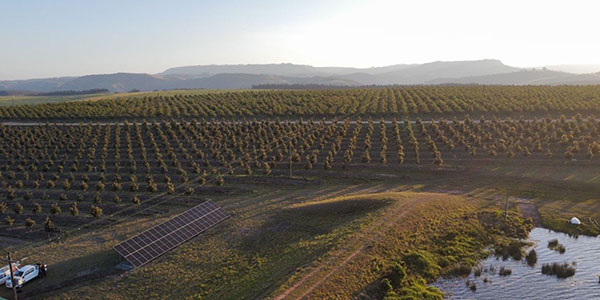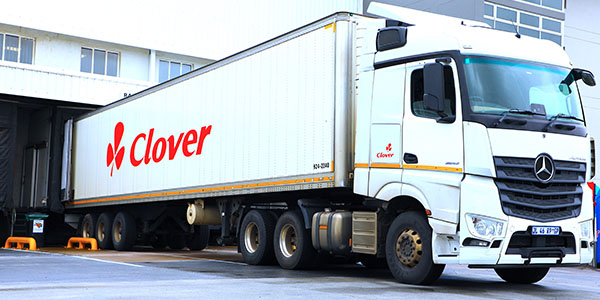
Standard Bank's first hydro plant financing to power up Lowmar Farm
Lowmar Farm is a commercial farm enterprise located along the Great Fish River in the Eastern Cape. Previously owned by the Collett family since 1975, it was bought by the Marais family in 2011, and 5 years later, Lowmar (Pty) Ltd Company was formed.
Lowmar Farm grows crops including maize, lucerne, walnuts and pecan nuts and farms livestock such as sheep, cattle and ostriches.
The farm has relied on water from the river since 1976 because it has 450 hectares under irrigation.
The problem
To sustain their farms and meet the nation's food security requirements, an increasing number of farmers are investing in hydroelectric plants, also referred to hydro plants.
Lowmar Farm relies on the water from the Great Fish River for irrigation delivered by electrically driven sprays and centre pivot systems.
They’ve experienced significant crop losses resulting from loadshedding and grid instability, eventually leading to revenue losses of about R3.1 million annually. They’ve faced rising expense costs driven by fuel used for generators and higher maintenance costs on electrical equipment. This was exacerbated by the need for equipment to restart up to 4 times per day.
|
“Issues such as not being able to irrigate during loadshedding, which brought the pelletising factory to a halt, and the fact that our staff and contractors were unable to complete tasks contributed to the losses experienced,” says owner Japie Marais, Lowmar Farmer. |
The solution
Faced with an ongoing situation where power outages could last up to 3 weeks, Lowmar Farm owners decided to gain energy independence and build power generation facilities.
We partnered with Lowmar Farm by providing a financial solution comprising a multi-product structure to finance the new hydro project. This is the most significant private hydro project Standard Bank South Africa has ever provided financial support to. The financing will cost around R24 million, with commercial asset finance for R13 million of the project structured on a 10-year debt and an R11 million term loan.
“The 362kWp hydro plant is expected to produce about 2.9GWh in its first year, which will provide sufficient power for 2 farms,” says Maudene van Rooyen, specialist in power and sustainable solutions at Standard Bank Business and Commercial Banking.
The outcome
The switch to hydrogen solutions has enabled Lowmar Farm to sustain its operations while adding value to its products.
This project has also successfully powered 2 shearing sheds, a walnut cracking facility, a pelleting factory, 2 cold rooms, 2 farm workshops and all the houses on the property.
|
“In the early days of its operation, the hydro plant is already delivering positive results. The farm is unaffected by loadshedding, and generators are no longer required. Within the first 7 weeks of operation, the hydro system generated power to R550 000 at Eskom’s rates. Output is expected to increase as the plant gears up and water flow increases,” says Maudene van Rooyen. |
Lowmar Farm foresees additional advantages by expanding its export base, which includes meat products alongside its current exports of wool and pecan nuts.

For nearly two decades we have partnered with Sebetsa Trading to deliver holistic services, including Commercial Asset Finance solutions, that have enabled the business to grow its fleet, minimise risk, save costs and more.

Standard Bank partners with Dungay Trust to implement a solar energy solution, driving sustainable farming and a greener future

We are proud to have recently been awarded the tender to manage Clover’s fleet of 738 vehicles.





























